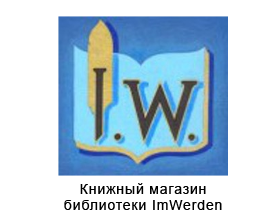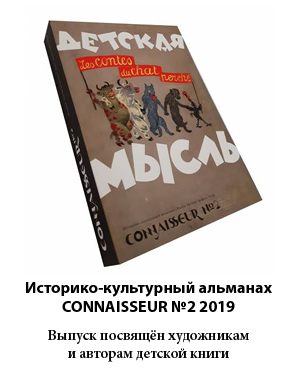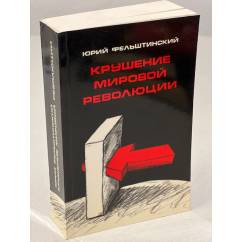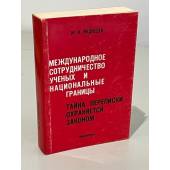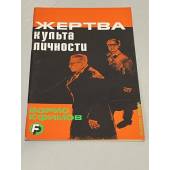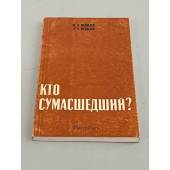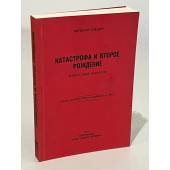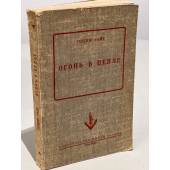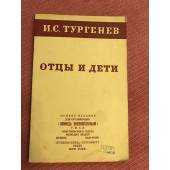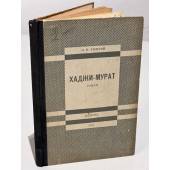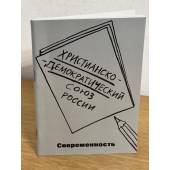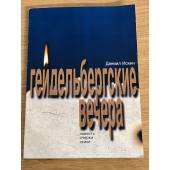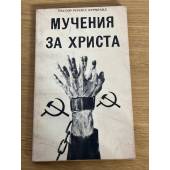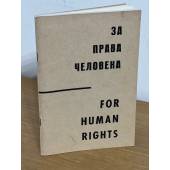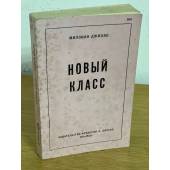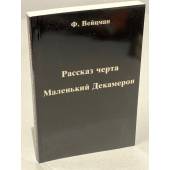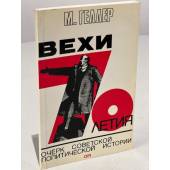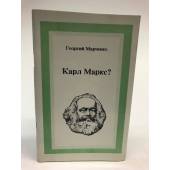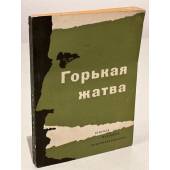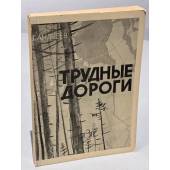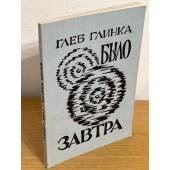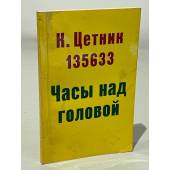
No products
Product successfully added to your shopping cart
There are %d items in your cart. There is 1 item in your cart.

Categories
- Albums (2094)
- Antique (before 1850) old books (before 1941) (582)
- Art and culture (5352)
- Audiobooks, compact discs (CD) (118)
- Autographed books (265)
- Board games (19)
- Books for school (4714)
-
Books in foreign languages
(8559)
- Books in Altai (4)
- Books in Azerbaijani (47)
- Books in Belarusian (46)
- Books in Bulgarian (2)
- Books in Dutch (2)
- Books in English (6725)
- Books in Estonian (10)
- Books in Finnish (7)
- Books in French (43)
- Books in Georgian (37)
- Books in Greek (2)
- Books in Hungarian (6)
- Books in Italian (12)
- Books in Japanese (7)
- Books in Karelian (3)
- Books in Kyrgyz language (6)
- Books in Latvian (46)
- Books in Lithuanian (7)
- Books in Norwegian (4)
- Books in Polish (14)
- Books in Portuguese (2)
- Books in Slovak (2)
- Books in Spanish (17)
- Books in Swedish (3)
- Books in Tajik (34)
- Books in the Adyghe language (3)
- Books in the Balkar language (8)
- Books in the Bashkir language (73)
- Books in the Buryat language (5)
- Books in the Kalmyk language (7)
- Books in the Karachai language (1)
- Books in the Komi language (5)
- Books in the languages of the peoples of the Caucasus (7)
- Books in the Mari language (17)
- Books in the Mokshan language (1)
- Books in the Mordovian language (3)
- Books in the Nogai language (1)
- Books in the Tatar language (101)
- Books in the Udmurt language (10)
- Books in the Yakut (Sakha) language (27)
- Books in the Yarzyan language (2)
- Books in Ukrainian (982)
- Books in Uzbek (9)
- Chuvash language books (29)
- Kazakh language books (8)
- Business. Economy (1628)
- Calendars (41)
-
Children's Literature
(10374)
- Books for parents (353)
-
Children's creativity and leisure
(893)
- Children's games. Experiments and experiments (15)
- Coloring pages (12)
- Crafts, cooking for children (6)
- Drawing for children (11)
- Make with your own hands (31)
- Modeling, application (7)
- Organization of children's parties (2)
- Origami, paper craft (5)
- Puzzles, crosswords for kids (7)
- Questionnaires, diaries, albums (1)
-
Educational and educational literature for children
(1735)
- Attention. Imagination. Memory (26)
- Basic security (4)
- Creative development (45)
- Foreign languages (102)
- General development. Manuals, reference books (82)
- General preparation for school (43)
- Introduction to the outside world (69)
- Logic. Thinking (29)
- Math and counting (42)
- Teaching reading and writing (89)
-
Educational literature for children
(772)
- Biographies for children (37)
- Books for boys (21)
- Books for girls (19)
- Culture, art, religion (49)
- Encyclopedias, reference books and other educational literature for children (181)
- History for children (87)
- Nature and the environment (244)
- Psychology. Etiquette (12)
- Science, technology, transport (54)
-
Fiction for children
(4350)
- Books for kids (110)
- Books on cartoons and films. Comics (80)
- Detectives and adventures for children (193)
- Foreign prose for children (304)
- Myths. Legends. Historical prose for children (66)
- Poetry for children (145)
- Russian prose for children (413)
- Science Fiction, Fantasy and Horror for Kids (116)
- Tales (499)
- Tales and stories about animals (145)
- Soviet children's books (895)
- Toy books (40)
- Collected works. Multivolume editions (3709)
- collection sets (50)
- Comics (53)
- Cookery (1382)
- Dictionaries. Phrasebooks (1318)
- Electronic books (10)
- Encyclopedia (1019)
- Engravings (7)
- Feng Shui (113)
- Fiction (84777)
- German and Germany (36233)
- gramophone records, vinyl (131)
- Guides (2052)
- Healthy lifestyle. Healthy eating. Fitness (1821)
- History (9805)
-
House. Life. Leisure.
(7750)
- Dom. Life (3180)
- Erotic books, books about sex, kamasutra (194)
- Hobby. Leisure (1659)
- Reference Literature (2212)
-
Sport
(952)
- Aerobics. Fitness. Yoga. Dancing (31)
- Board games (155)
- Combat and martial arts (81)
- Extreme sports (12)
- Gymnastics. Light and weightlifting (8)
- Olympic Games (13)
- Other sports (51)
- Physical culture and sport (72)
- Self-defense. Survival (20)
- Sport games (23)
- Tourism (84)
- Water sports (28)
- Winter sports (18)
- Kits (different books) (138)
- Kits (magazines) (60)
-
Magazines and newspapers
(2577)
- Architecture, interior (9)
- Astrology, esotericism (39)
- Bills (232)
- Calendars 2020 (1)
- Calendars 2021 (3)
- Cars, hunting, fishing (13)
- Celebrities, ZhZL (37)
- Children's magazines (13)
- Computer, technology (3)
- Cooking and Recipes (25)
- Crosswords, Scanwords (10)
- Editions with TV program (134)
- Entertainment magazines (7)
- Fashion, style, beauty (16)
- History (111)
- Hobbies, interests (101)
- Home, family, leisure (77)
- House, garden, vegetable garden (34)
- Literature, theatre, music (235)
- Magazines for men (209)
- Magazines for parents (2)
- Magazines for women (110)
- Medicine, health (155)
- Religion (10)
- Russian press abroad (483)
- Science, technology, fantasy (169)
- Sewing, knitting, needlework (4)
- Society, politics (635)
- Special Editions (60)
- Travel, countries (13)
- Maps, atlases (645)
- Military business. Weapons. Special services (4048)
- Miniature books (149)
- Music. Sheet music (1046)
- Postage stamps (92)
- Postcards (190)
- Posters (37)
-
Professional, educational literature
(24874)
-
Applied sciences. Technique
(2540)
- Agriculture. Veterinary medicine (40)
- Architecture (361)
- Chemical industry (104)
- Construction (447)
- Design (137)
- Energy (75)
- Engineering. Instrumentation (184)
- Food industry (19)
- Jewellery (22)
- Life safety (46)
- Light industry (39)
- Metallurgy (29)
- Mining (83)
- Nanotechnologies (5)
- Oil and gas industry (54)
- Other industries (101)
- Polygraphy (8)
- Radio engineering. Electronics. Communication (262)
- Technical Sciences (332)
- Technology of production (106)
- Timber and wood chemical industry (13)
- Transport (183)
-
Computer Literature
(486)
- Administration. Information security (4)
- Computer for … (16)
- Computer networks. Internet (23)
- Databases (8)
- Design systems (CAD/CAM) (1)
- General questions (42)
- Graphics, design, multimedia, games (27)
- Hardware (4)
- Informatics (28)
- MS Office. Microsoft office programs (11)
- Operating systems (12)
- PC work for beginners (18)
- Programming languages and environments (38)
- Humanities (8894)
-
Legal Literature
(1001)
- Civil law (54)
- Civil procedural law. Judiciary (8)
- Comments (12)
- Constitutional law. Administrative law (30)
- Criminal law (40)
- Criminology. Criminalistics (37)
- Customs law (8)
- Financial law (11)
- International law (34)
- Labor law. Social security law (9)
- Land law. Environmental law (3)
- Law enforcement agencies (23)
- Law in general. History and theory of state and law (30)
- Other branches of law (23)
- Regulatory acts. Reference literature (19)
- Right in everyday life (17)
- Textbooks and teaching aids (43)
- Workshops and practical aids (6)
-
Medicine and Health
(2442)
- Applied Medicine (41)
- Clinical Medicine. Internal Medicine (25)
- Cosmetology (20)
- Fundamentals of Medicine. Healthcare System (26)
- General pathology. General therapy (19)
- Narcology (13)
- Nervous system (29)
- Other branches of medicine (93)
- Pediatrics (53)
- Pharmacology. Toxicology (20)
- Popular and alternative medicine (1113)
- Psychiatry. Neuropathology. Sexopathology (71)
- Surgery (19)
- Monographs (1111)
- Natural sciences. Mathematics (2225)
- Social Sciences (5634)
-
Applied sciences. Technique
(2540)
- Religion. Esotericism (6304)
- Russian Abroad (books published abroad) (2589)
- Russian language (770)
- Russian language for children (Textbooks) (155)
- Soviet books until 1992 (12918)
- Yoga Books (158)
- Show All
Крушение мировой революции. Очерк первый. Брестский мир. Октябрь 1917 - ноябрь 1918
30046
As New
Items 6
0,5 kg
Sale the same product...More info
This essay is devoted to the history of the Brest-Litovsk Peace Treaty, signed on March 3, 1918 by the Soviet government with the countries of the Quadruple Alliance. In Soviet foreign policy, there was probably no agreement more fragile than this - after existing for a little more than nine months, the Treaty of Brest-Litovsk was torn up by the German and Soviet governments, and later, with the surrender of Germany in the First World War, it was also canceled by Article 116 of Versailles agreement. With the light hand of V.I. Lenin’s treaty, called a “respite,” aroused criticism and resistance from the overwhelming majority of revolutionaries, on the one hand, and Russian patriots, on the other. The first argued that the Treaty of Brest-Litovsk was a stab in the back of the German revolution. The second is that this is a betrayal of Russia and its allies. Both of them, each in their own way, were right. However, for reasons unknown to anyone, Lenin insisted on the Treaty of Brest-Litovsk, and eventually achieved its signing. The question of the evolution of Lenin's views after he came to power in October 1917 and the goals that Lenin set for himself before and after the coup is, apparently, the main one in studying the history of the Brest-Litovsk Treaty and the more general question related to it: the world revolution . It would be a mistake to assume that Lenin changed his views depending on the circumstances. It would be more correct to assume that in any situation he found the best way to achieve his goals. It can be argued that Lenin waged a struggle throughout his entire adult life and, starting around 1903, a struggle for power. It is more difficult to answer the question whether he needed power to win the revolution or whether the revolution was seen as a means to achieve power.
Table of contents:
1. Bolsheviks in Germany.
2. The birth of the Bolshevik-Left Socialist Revolutionary coalition.
3. Formation of the Soviet government.
4. Beginning of negotiations in Brest.
5. Convocation and dispersal of the Constituent Assembly.
6. The problem of revolutionary war.
7. Trotsky's middle line: “no peace, no war.”
8. Lenin's middle line: "breathing space."
9. The world that never existed: Transcaucasia.
10. The world that never existed: Ukraine.
11. The strategy of despair.
12. On the way to a one-party dictatorship, April-June.
13. Count Mirbach's mission.
14. Mirbach's murder.
15. The defeat of the Left Socialist Revolutionary Party.
16. Break of the Brest Peace.
17. Epilogue.
18. Applications: Bibliography, index.
Data sheet
| ISBN | 1870128095 |
| Publisher | Лондон, Overseas Publications Interchange, 1991 |
| Number of Pages | 656 |
| Bookbinding | Мягкая издательская обложка |
All author\'s books:
Seller Info/Map |
Seller type: Company (business)
Подробнее
 Posev
Издательство ПОСЕВ
Posev
Издательство ПОСЕВ
Flurscheideweg 15
Frankfurt am Main, 65936
Germany
(069)341265
Свободное русское издательство «Посев» — издательство, учреждённое в Германии российскими эмигрантами из Народно-трудового союза и выпускающее книги (в том числе художественную литературу) на русском языке, а также журналы «Посев» и «Грани».
Основано в 1945 году в лагере для перемещённых лиц Мёнхенгоф в американской зоне оккупации Германии. В 1947 году издательство переезжает в Лимбург-на-Лане, а в январе — во Франкфурт-на-Майне. В 1992 году открыт филиал в Москве.





